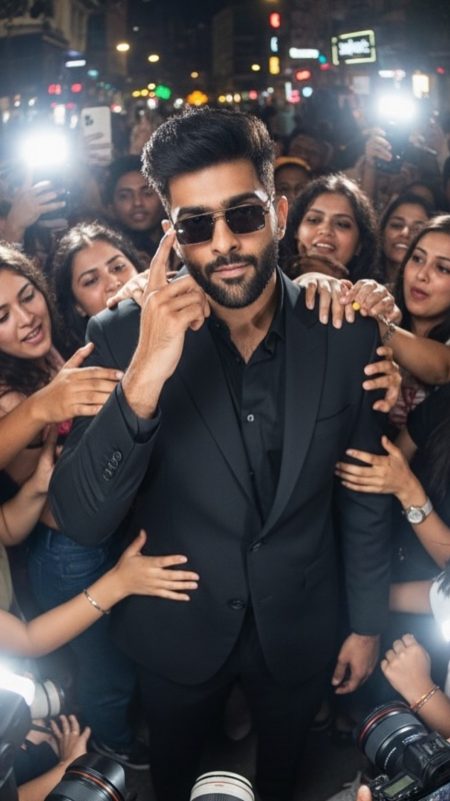Ultra-realistic fairytale princess portrait




Pastel sarees and soft traditional palettes are having a cultural moment, blending a whisper of modern minimalism with the warmth of heritage craftsmanship. Those who have watched fashion cycles evolve know that trends return with a gentler voice: vivid prints and heavy embellishments still hold their place, but there is a distinct craving for subtlety — for fabrics that tell a story without shouting. This is where candid beauty in pastel traditions shines: a quiet, confident aesthetic that suits everyday celebrations, intimate ceremonies, and photography that captures real moments.
What makes pastels so irresistible in the world of ethnic fashion? First, they are inherently flattering. Soft shades like lavender, mint, blush pink, powder blue, and muted mustard have a way of complementing different skin tones and reflecting light beautifully. Pastel sarees can turn a simple silhouette into something luminous. They highlight textures — a delicate zari border, subtle buti work, or a tone-on-tone weave becomes more readable when not competing with loud colors. Designers increasingly use pastels to reinterpret classics like banarasi, chikankari, organza, and tussar silk because the result is both timeless and contemporary.
Pastels are also emotionally resonant. They feel personal and approachable, evoking calm, romance, and nostalgia. That emotional quality is why candid photography and pastel traditions pair so naturally. When a photographer steps back and captures unposed expressions — a soft laugh, a glance down at cupped hands, a wind-tousled pallu — the pastel palette refracts those moments into images that feel intimate and evergreen. Candid portraiture in soft hues emphasises mood rather than spectacle, and it invites the viewer into a private, heartfelt scene.
For those interested in styling pastels, the rules are simple but effective. Let the fabric and fall do the talking. A plain pastel saree with a single embroidered border gains personality with handcrafted jewelry — think small jhumkas, oxidized silver, or understated pearl drops. If you prefer a little drama, pair a pastel saree with statement earrings or a single bold cuff; avoid clustering too many heavy elements together. The idea is to maintain balance: soft color, focused accessories. Blouses in complementary tones create cohesion, while textured blouses (handwoven, brocade trims, or delicate lace) give depth without overpowering the look.
Footwear and hair also play a crucial role. For daytime events, muted kolhapuris, elegant sandals, or woven flats keep the mood relaxed. For evening wear, lean toward metallic or embroidered heels that add just the right lift. Hair can be worn in understated buns, loose waves, or neat braids — each choice shifts the vibe subtly: low buns read classic and poised; loose hair reads romantic and candid. Minimal makeup complements pastels beautifully — dewy skin, a soft blush, and a touch of lip tint are often all that’s needed to complete the look.
When planning a photoshoot around pastel traditions, environment and lighting are your allies. Natural light, particularly during the golden hour, enhances pastel tones and creates flattering skin highlights. Brick walls, gardens with blossoming flowers, and sunlit pavements act as natural backdrops that elevate a pastel saree without competing with it. Urban textures like vintage posters or narrow alleys can add contrast and narrative depth. For night shoots, warm ambient lights and soft reflectors make pastels glow rather than wash out. In every case, the objective is to highlight the candid moment, so let movement, interaction, and genuine expression lead the composition.
Photographers aiming for candid pastel-focused portraits should prioritize ease and comfort for the subject. Start with simple prompts: ask them to walk slowly, look toward a distant point, or recall a pleasant memory. These prompts encourage natural expressions that look effortless on camera. Avoid prolonged, rigid poses; candid shots thrive on motion and slight imperfections — a shifting drape, a stray tendril of hair, a spontaneous laugh. Capture those unstudied details, and you’ll end up with a body of work that feels authentic and emotionally resonant. Authenticity sells — whether it’s on social media, portfolio pages, or printed photo albums.
From a design perspective, pastel sarees open up exciting possibilities for small businesses and artisans. Because the palette is understated, craftsmanship becomes the focal point. Weaves, hand-block prints, delicate embroidery, and artisanal dyes gain center stage in a pastel setting. For independent brands, this is an opportunity to champion slow fashion principles — limited runs, technique-focused production, and locally sourced materials — while appealing to a market that values thoughtfulness over fast trends. Buy less, choose well is a natural mantra for pastel devotees.
Styling pastels for modern wedding or festive events is another area where creativity shines. Pastel bridal trousseaus, quinceañera alternatives, and festive outfits can be layered with lighter dupattas, embroidered belts, or tonal jackets for a contemporary twist. Grooming the bridal look around soft colors also allows for meaningful personalization: family heirloom jewelry pops against pastel fabric, hand-painted footwear becomes more visible, and even simple embellishments like floral hair accessories feel intentional and romantic. The overall effect is understated glamour that still reads as special.
Social media and visual platforms have accelerated the pastel movement, but the trend’s longevity depends on how well style intersects with substance. Photography that over-edits pastel tones risks stripping away texture and authenticity. Instead, preserve the weave details, shadow play, and natural skin tones. When editing pastel portraits, focus on gentle color grading, controlled highlights, and preserving midtones. Subtle vignettes and judicious sharpening can add focus without creating a synthetic appearance. Let the material tell the story.
For readers who want to adopt pastel traditions in everyday life, start small. Introduce pastel scarves, light kurtas, or pastel dupattas into your rotation. Mix them with darker basics for contrast or pair them with denim for a casual fusion look. Pastels can act as an approachable entry point into traditional wear for people who find heavily ornamented ensembles too formal. Over time, you can explore richer textures and more intricate handwork as comfort and confidence grow. The key is gradual integration and personalizing how you wear tradition.
Community and culture matter too. Pastels are not a replacement for the vibrant palettes that define many Indian festivals; rather, they complement them. In multi-outfit events, consider pastel pre-ceremony wear that shifts into brighter attire for the main celebrations. This layering of mood across the day reflects the range of emotions in an event — calm morning rituals, lively midday gatherings, and festive high-energy evenings. Versatility is the pastel advantage.
Finally, embrace experimentation. Pastels invite play with textures, seasonal fabrics, and cross-cultural pairings. Mix pastel organzas with embroidered cholis, or team a pastel silk saree with contemporary belts and boots for an unexpected hybrid look. Collaborate with local artisans to produce personalized motifs, and use pastel palettes to spotlight sustainability — low-impact dyes, natural fabrics, and handcrafted trims. These choices turn a trend into a thoughtful wardrobe practice that respects craft and style alike.
In short, the charm of candid beauty in pastel traditions lies in its quiet confidence. It’s a trend that honors tradition while inviting a softer, more intimate mode of expression. Whether you are styling a saree for a small family ceremony, planning a photoshoot that celebrates real moments, or building a curated artisanal collection, pastels offer a pathway to elegance that feels both fresh and familiar. Choose pieces that speak to your personal story, let craftsmanship lead, and allow candid moments to define the memory — because in pastel traditions, the most powerful statement is often the simplest one.
